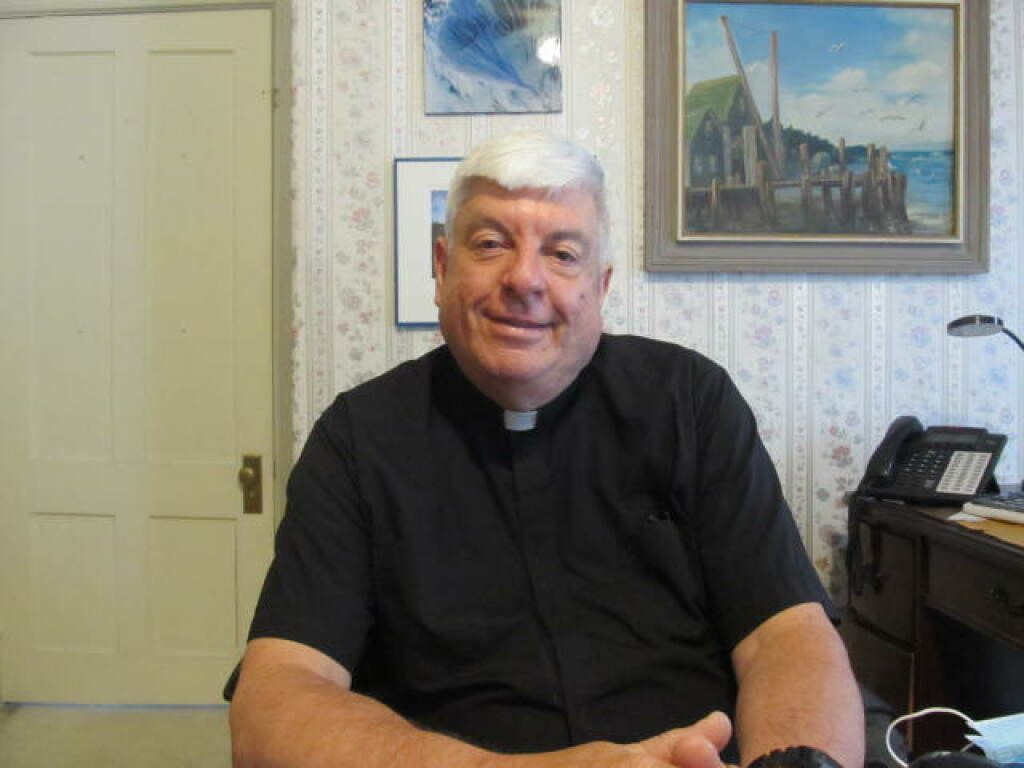 Blessed are the poor in spirit
Blessed are the poor in spirit
To help us appreciate today’s readings, I want to begin with two stories.
The first… On the 27 th of March 1808, a grand performance of The Creation took place in Vienna. The composer himself, Franz Joseph Haydn, who was quite elderly, was able to be in attendance. His health was failing and so he had to be wheeled into the theater. His presence aroused intense enthusiasm among the audience, which could no longer be suppressed as the chorus and orchestra burst with full power into the passage, “And there was light.”
Amid the tumult of the enraptured audience, the aged composer was seen striving to raise himself. Once on his feet, he mustered up all his strength, and in reply to the applause of the audience, cried out as loudly as he was able, “No, no! Not from me, but” he said, pointing up to heaven, “from thence—from heaven above—comes all!” He then feel back into his chair, faint and exhausted, and had to be carried out of the theater.
And the second story, which is close to my heart… After he had spoken during a preaching mission for parish renewal, a renowned evangelist said that a young woman came up to thank him for restoring her faith, and told him that he was a very warm preacher.
Later that evening, as he reflected over the event, he was complimenting himself, recalling the person’s remarks. But, then, he remembered that in the dictionary the definition of warm is “not so hot.”
In our first reading the ancient prophet Zephaniah cries out, “Seek the Lord, all you humble of the earth…seek justice, seek humility….I will leave as a remnant in your midst a people humble and lowly.”
And then consider St. Paul’s advice in our second reading: “Consider your own calling, brothers and sisters. Not many of you were wise by human standards, not many were powerful, not many were of noble birth. Rather, God chose the foolish of the world to shame the wise, and God chose the weak of the world to shame the strong, and God chose the lowly and despised of the world to reduce to nothing those who were something, so that no human being might boast before God.”
And finally in today’s Gospel reading from the Beatitudes: “Blessed are the poor in spirit…Blessed are the meek…”
All three of our readings are unanimous in calling for, and praising, the virtue of humility. I like the story about the talented preacher because he showed humility in his self-deprecating humor: he recalled that “warm preaching” was “not so hot.” And that’s good advice for anyone who speaks, whether it be from a pulpit, a stage, an office, or the one sitting at the head of a family table: don’t elevate yourself in a proud and self-centered way just because you have a position of honor. And, on a practical note, when I preach, I always try to preach to myself first, and to use the terms “we” and “us”, rather than “you”.
And then the story about Franz Joseph Haydn at the concert in Vienna gives us another insight into humility. When I was young and someone said something positive about me, I tended to downplay or even deny it: Oh, it was nothing! But Haydn didn’t deny his gift. The fact of the matter is that he was a top-rate composer and musician. But humility meant that he did not forget the source of his gift, and in a very public way, by pointing to heaven, he reminded his audience of the source of our life, the source of our gifts.
If you watch football games, you may have noticed that the very talented players, particularly after they have made a spectacular play, will react. For some, there’s an exaggerated, in your face, happy dance, and sometimes taunting a player from the other team. Other players, however, will, along with their obvious glee, point up to heaven. If the act appears to be authentic, a true expression of faith and humility, I have a great respect and admiration for such a player. Without denying their gift, they humbly acknowledge the source in front of a rather huge audience.
And, above all, we have the example of Jesus himself. Consider the following, which we find in the Letter of St. Paul to the Philippians: “Though he was in the form of God, Jesus did not deem equality with God something to be grasped at. Rather, he emptied himself and took the form of a slave, being born in the likeness of human beings. He was known to be of human estate, and it was thus that he humbled himself, obediently accepting even death, death on a cross! Because of this, God highly exalted him and bestowed on him the name above every other name, so that at Jesus’ name every knee must bend in the heavens, on the earth, and under the earth, and every tongue proclaim to the glory of God the Father: Jesus Christ is Lord.” You can check it out this week as part of your prayer: Paul’s letter to the Philippians 2:6-11.




